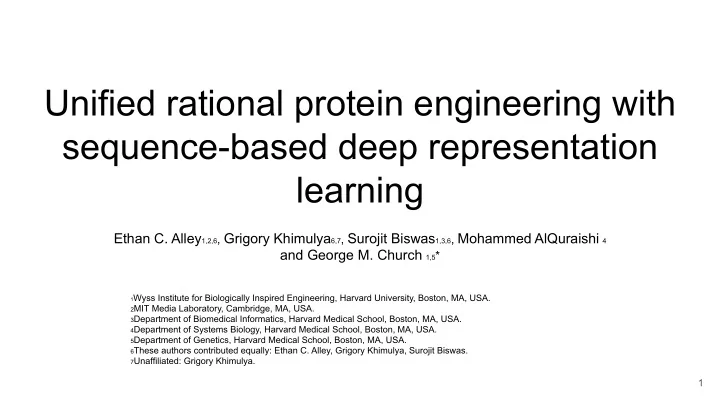

Unified rational protein engineering with sequence-based deep representation learning Ethan C. Alley 1,2,6 , Grigory Khimulya 6,7 , Surojit Biswas 1,3,6 , Mohammed AlQuraishi 4 and George M. Church 1,5 * 1 Wyss Institute for Biologically Inspired Engineering, Harvard University, Boston, MA, USA. 2 MIT Media Laboratory, Cambridge, MA, USA. 3 Department of Biomedical Informatics, Harvard Medical School, Boston, MA, USA. 4 Department of Systems Biology, Harvard Medical School, Boston, MA, USA. 5 Department of Genetics, Harvard Medical School, Boston, MA, USA. 6 These authors contributed equally: Ethan C. Alley, Grigory Khimulya, Surojit Biswas. 7 Unaffiliated: Grigory Khimulya. 1
Evolutionary Approaches Structural Approaches 2
3
Recurrent Neural Network http://colah.github.io/posts/2015-08-Understanding-LSTMs/ 4
Long Short Term Memory (LSTM) 5
multiplicativeLSTM 6
multiplicative LSTM (mLSTM) 7
8
9
10
11
Conclusions ● UniRep features embody a subset of known protein characteristics ● Capable of determining the stability and functionality of proteins ● UniRep is able to generalize to unseen portions of the protein fitness landscape Future Work ● Extend UniRep to generate novel proteins ● Use UniRep to vectorize protein to determine evolutionary information 12
13
Recommend
More recommend